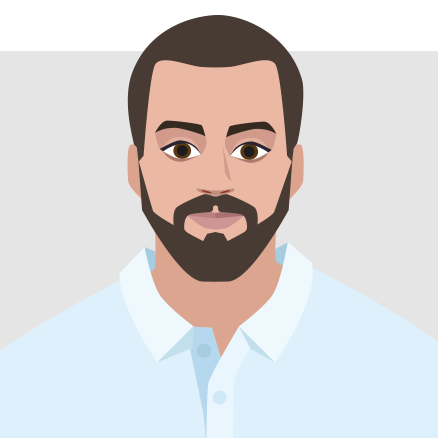Overseas colleague
As a Technical Support Officer for the Regional Hubs, part of my job is to be responsible for logistics; things like the delivery of diplomatic bags across the region. If a King’s Messenger is accompanying a bag by plane, I’ll have an air-side security pass to be there on the tarmac and escort the package safely once the plane lands.
The challenge is, in different parts of the world there are different ways of doing things. To get an air-side pass and get onto the tarmac at an airport, for instance, some countries will have very different security requirements. What’s great though is that I can always talk to colleagues who’ve been there, and to people at post, to understand what’s going on and make sure we plan ahead.
If a King’s Messenger is accompanying a bag by plane, I’ll have an air-side security pass to be there on the tarmac.
There’s also some technical work our team do for buildings in our region; smaller day-to-day repair works that don’t need a full project team involved. It might be some remedial work on workstations or servers in an embassy building, for instance. It’s work where, because we’re already on the ground there and we have the skills, it’s more cost-efficient for the customer to have us be able to do it.
We always try to make sure that trips are as efficient as they can be, and I do travel a lot as part of the role. I’ve just come back from Switzerland, where we’ve got the mission to the UN in Geneva, and the embassy in Bern. I’ll visit both of those at the same time, so that we can make the most of the trip.
It’s odd to say, but before I worked in this job, I worked in London, and I would say my children see more of me now than they did back then. Before, I’d be getting the train home late and they’d already be in bed. Now, when I’m in the UK, I’m leaving Hanslope Park in time to be home for dinner with them. Then, when I’m abroad, we’ve got the technology to talk face-to-face with them in the evenings. I talked about it a lot with my wife and my family before I took the job, but it works well for us.
The team are very supportive of everyone’s lifestyles – and everyone’s needs too. I have ADHD, and the organisation have really helped in terms of making reasonable adjustments for me. I’ve got my own desk, and I’ve got a diary so that I can plan ahead to break down long-term projects and work out what I need to do. I’ve got accessibility software, mind-mapping software, to help me in planning things. And I’ve got a team around me who recognise that not all disabilities are visible.
I’ve got a team around me who recognise that not all disabilities are visible.
I think a lot of companies talk about mental health and disability, but they don’t always act on it. But even when I’m travelling, the business supports us all. My plant manager at my new post in Amman, for instance, is trained as a Mental Health First Aider. And we have mental wellbeing rooms wherever you go around the world, so you’ve always got a quiet space away from work. We’re open and supportive of each other.”
